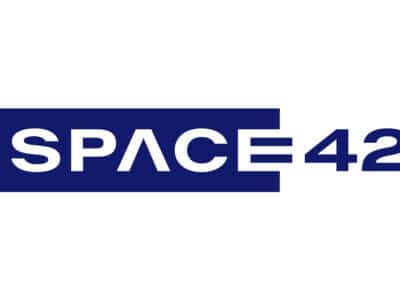With $200,000 already secured in pre-seed funding and the goal of reaching a million dollars in revenue by 2023, Diversely.io is betting on the growing interest in diversity and inclusion in the workplace.
Coverage and understanding of diversity and inclusion has gone through the roof this year, said CEO and co-founder Helen McGuire.
McGuire, who founded a platform for professional women across the Middle East and Asia in Dubai back in 2016, believes the region has made incredible progress in diversity and inclusion since then.
Diversely.io, which will be available in the UAE by 2021, aims to tackle the global problem of a lack of inclusion faced by under-represented groups in the workplace through tech.
McGuire and her co-founder and CPO Hayley Bakker incorporated Diversely.io in August and raised sizable funds for it despite the global economic uncertainties which have arose with the coronavirus pandemic.
-and-Helen-McGuire.jpg?kLoKbifV) Diversely co-founders Hayley Bakker (left) and Helen McGuire
Diversely co-founders Hayley Bakker (left) and Helen McGuire
Armed with a clear growth plan and big ambitions, the two women entrepreneurs believe diversity and inclusion will pave the way to success.
How did the idea for Diversely come about and why is there a need for such a platform?
Diversely was an idea that I had, springing from my feelings of enormous frustration around the lack of scalable solutions to the problem of diversity and inclusion in the workplace.
I previously founded a company called Hopscotch, a women’s careers platform initially founded in Dubai in 2016, and so I’ve worked in this space nearly five years. Although we managed to create a lot of progress, both in the region and in Asia, where diversity inclusion was a concern for women, that’s really where it ended.
There are so many different aspects related to diversity and inclusion such as age, race, culture, people and disability. So I really felt that we’re only scratching the surface of the problem.
I knew that tech was probably the answer, but I’m not from a tech background. I joined a tech start-up accelerator back in January and that’s where the idea for diversily was initially born. Then, I began to work on it with my current co-founder back in April of this year. It’s really just grown from there and we incorporated it in August.
Can you give me an example of some of the issues companies encounter when it comes to diversity?
One of the issues that businesses face is the way in which they try to source talents so we started looking at job descriptions and the way they were written.
 Diversely uses tech to help businesses find the best candidates
Diversely uses tech to help businesses find the best candidates
We also have a partner in University of Nottingham and we tested job descriptions written in a gender neutral format and in their original format. We found that when you rewrite a job description to be more inclusive to all underrepresented groups, you increase the diversity of those applicants by up to 70 percent. You also are twice as likely to find the right fit talent for your team.
Just starting from that perspective, you can see the kind of impact that taking bias out of the process really has for an organisation; it’s not just about finding more diverse talent, it’s actually about broadening your reach to find the best talent.
How does diversity in the Middle East compare to other regions you’ve worked in?
I would say we’ve seen enormous progress in the Middle East over the last five years. When I first started out talking about these issues, I would have to sell the idea of why a company might want to hire more women. Now, thankfully, I don’t have to sell that, I don’t have to explain to people why diversity and inclusion is important.
We’ve seen a year on year growth of 100 percent in the diversity and inclusion space, which is really represented as the numbers of people that are employed with that title.
You see that not just for the bigger companies but for the smaller ones as well. I think it’s generally accepted that a diverse team is a better performing team and a better balanced one. It also certainly helps with the bottom line for most businesses.
How much money did you raise in pre-seed investments and what was the profile of the investors?
The raise began in August. We were looking for angel investors who are interested in this space. Probably 50 percent of them have very specific background in HR or HR tech, or recruitment. Some of them are just very interested in improving diversity in the workplace and so invested from that perspective.
We have eight global investors and we’ve raised a total of $200,000 which was our target.
What will the pre-seeding funds you’ve secured be used for?
We entered a couple of interesting international HR tech competitions and won a couple of prizes there, even though we were super early stage.
From that, we began beta-testing with clients in Singapore, the Middle East and in the US. For example, the job description analyser that we’re building is one of the tools that these companies are testing to reduce bias in their language for their job descriptions.
We also have a survey, a score and a report that helps businesses to understand exactly where they are where diversity and biases are concerned. It’s a look at their current standing to gain a unique score for that and, off the back of it, to help them understand exactly where they might be missing out in terms of specific areas of talent.
What are the next steps?
Next steps for us are to continue building the product. We have a full stack team based in Vietnam who are hard at work now building our sourcing module.
Underneath that module, there’s the job description analyser and an anonymiser, so that businesses can anonymise any applicants that come through into our system.
Now we’re able to understand exactly which candidates are the best skilled for the job description that they’ve written. We are also able to look at the diversity of those candidates to try and close whatever gap the organisation is concerned with.
The other tool that we’re building is a job poster. Essentially, you can post out from our platform to niche job boards globally. This helps broaden your reach to attract the best, perhaps not the most obvious, candidates out there.
These are the tools that will be rolled out in Q1 and Q2 next year. We are looking for and working with initial beta tester clients who are interested in trailing those solutions for their businesses.
What will the rest of your funding journey look like?
We’re already talking to a number of VCs for a follow on round next year, possibly a little later. But certainly will be picking up those conversations towards the middle of next year with those investors and VCs, and obviously always open to other conversations as well.
 Helen McGuire also founded women’s careers platform Hopscotch.work in 2016
Helen McGuire also founded women’s careers platform Hopscotch.work in 2016
What are your expansion plans?
We intend to be global by 2023, reaching a million dollars in revenue at that point. So it’s very much a global endeavour but you have to start somewhere. We’re based in Singapore but our beta testers are based both in this region, the Middle East, back in the US, and some in Europe.
We’re seeing lots of inquiries and interest from UK, Europe and the US because, quite often, the discourse and the need is perhaps more progressed in those in those spaces than here in Asia.
What is your business model?
Businesses can subscribe to our platform and pay a monthly subscription rate per user per month, or a yearly subscription, which will be of better value. We’re making those rates accessible, particularly at the beginning, and particularly for those businesses that are beta-testing with us right now.
How did coronavirus impact you, especially since you were securing investments during the pandemic?
I think, if anything is impacted us positively. We took the lockdown here in Singapore as time to develop the vision, the concept, and the ambition for Diversely. It really gave us that sort of focused time, when we really couldn’t focus on anything else or do anything else, to build the product.
From a fundraising perspective, it was a little daunting. You certainly hear scare stories around investors pulling all their capital back or keeping it for the investments that they have rather than investing anything new. We didn’t find that and there is still money out there, for sure.
We’re focusing very much on the tech start-up world where they are scaling and hiring so there’s a big need for our products. Also, I think diversity inclusion has just gone through the roof this year in terms of its coverage, and its understanding. I think our investors saw that and were relieved to see, finally, a solution that really got to the heart of the problem.
What advice would you give young entrepreneurs, young women entrepreneurs who want to launch their own start-up?
I would say don’t overthink it. You can spend an awful long time procrastinating and taking advice, some of which will be good, some of which will not be; so definitely just do rather than think.
Don’t be afraid to fail fast, to build things and break things very quickly. You really have to get out there to see whether your idea is something that people want; if it is, then you just have to start building.








